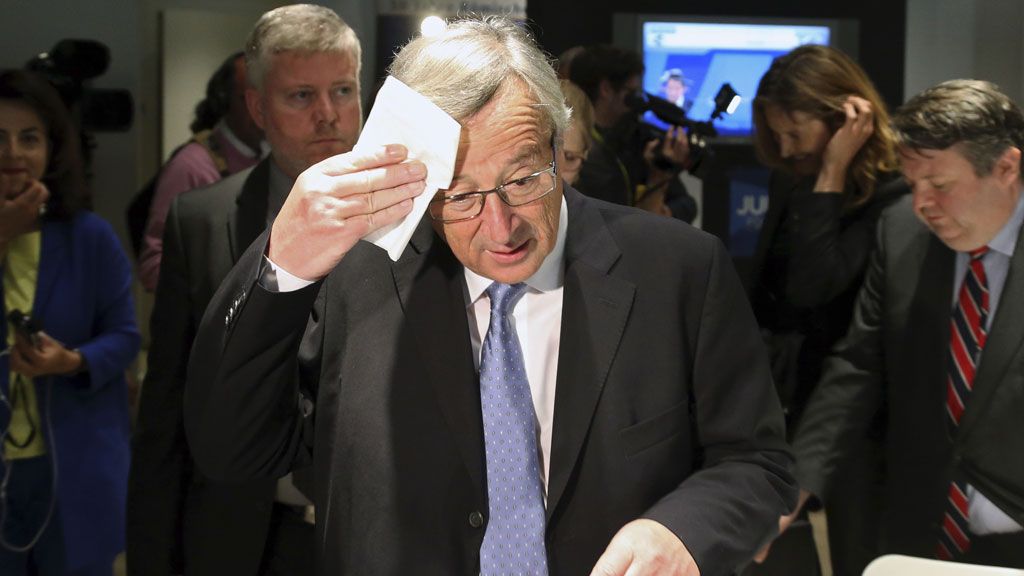What you should know about Jean-Claude Juncker
With Jean-Claude Juncker confirmed as European Commission president, he is attracting attention – from claims about his drinking to a spying scandal that drove him from office.

War
Although Jean-Claude Juncker was born nine years after the end of the second world war, in 1954, the conflict informs his views today.
He is from Luxembourg, a small country sandwiched between Germany and France, and his father Joseph was forced to fight for the Wehrmacht in the 1940s after the Nazis invaded.
After winning the vote to become the European People’s Party nominee for European Commission president, he said it was time to “talk about the real Europe again, the Europe that was crafted and imagined by those who, after the second world war, came back from concentration camps and the battlefields, and created this political programme”.
Prime minister
In Britain, Margaret Thatcher and Tony Blair are thought to have had a good innings as prime minister, but Mr Juncker trumped both of them.
He occupied Luxembourg’s top job for an astonishing 18 years from 1995 to 2013, making him one of the longest-serving democratically elected leaders in the world.

Scandal
Margaret Thatcher’s undoing was Europe and the poll tax, Tony Blair had Iraq, while for Mr Juncker it was a scandal involving widespread bugging by the Grand Duchy’s security services.
The former head of the state intelligence service, Marco Mille, was alleged to have secretly recorded a conversation with Mr Juncker using a device disguised as a watch.
After finding out what had happened, he decided not to take any action. A parliamentary inquiry was established to investigate claims that the security services had bugged politicians as part of a culture of favours and payments.
It concluded that Mr Juncker should take responsibility for what had happened. He denied wongdoing, but resigned when his left-wing coalition partners withdrew their support.
Federalist
To David Cameron, Mr Juncker is an old school federalist who is refusing to learn the lessons from May’s European elections, when Eurosceptic parties in countries like Britain and France broke the mould.
Mr Cameron wants a looser Europe, and it is fair to say Mr Juncker wants a closer one. He was an architect of the 1992 Maastricht Treaty, which created the European Union and the single currency, and after the eurozone crisis, has no desire to see integration stall.
Machiavellian
Mr Juncker was head of the Eurogroup during the eurozone bailouts and was accused on several occasions of being less than frank about what was doing on.
He denied European finance ministers were holding a meeting to discuss Greece’s membership of the euro, despite organising the gathering, and once memorably said: “When it becomes serious, you have to lie.”
When the French were due to vote in a referendum on the EU constitution in 2005, he said: “If it’s a yes, we will say, ‘On we go’, and if it’s a no, we will say, We continue’.”
Drinker and smoker
There are bound to be people who believe that claims about Jean-Claude Juncker’s drinking have emanated from the British government, because of his opposition to a Juncker presidency, but this would be wrong.
In early 2014, Jeroen Dijssebloem, the Dutch finance minister who succeeded Mr Juncker as president of the Eurogroup, described him as a “heavy smoker and drinker”.

Mr Juncker denied he had a drink problem, just as he has shot down allegations that he is trying to have the rules changed so can smoke at Brussels meetings.
Rumours about his drinking have been circulating for years.
He was accused of being drunk and abusive at a meeting with intelligence chief Marco Mille in 2007. A document leaked to the Luxembourg news magazine Paperjam gave an account of what allegedly happened.
“Towards evening we arrived at his office. It smelled of stale tobacco and an alarming scent of alcohol was in the air. Half staggering, he stepped out from behind his cluttered desk.
“Juncker was dead drunk, ordered himself two espresso and asked us to take a seat at the table. Without introductory words he began to insult Mille”. Mr Juncker has denied these claims.